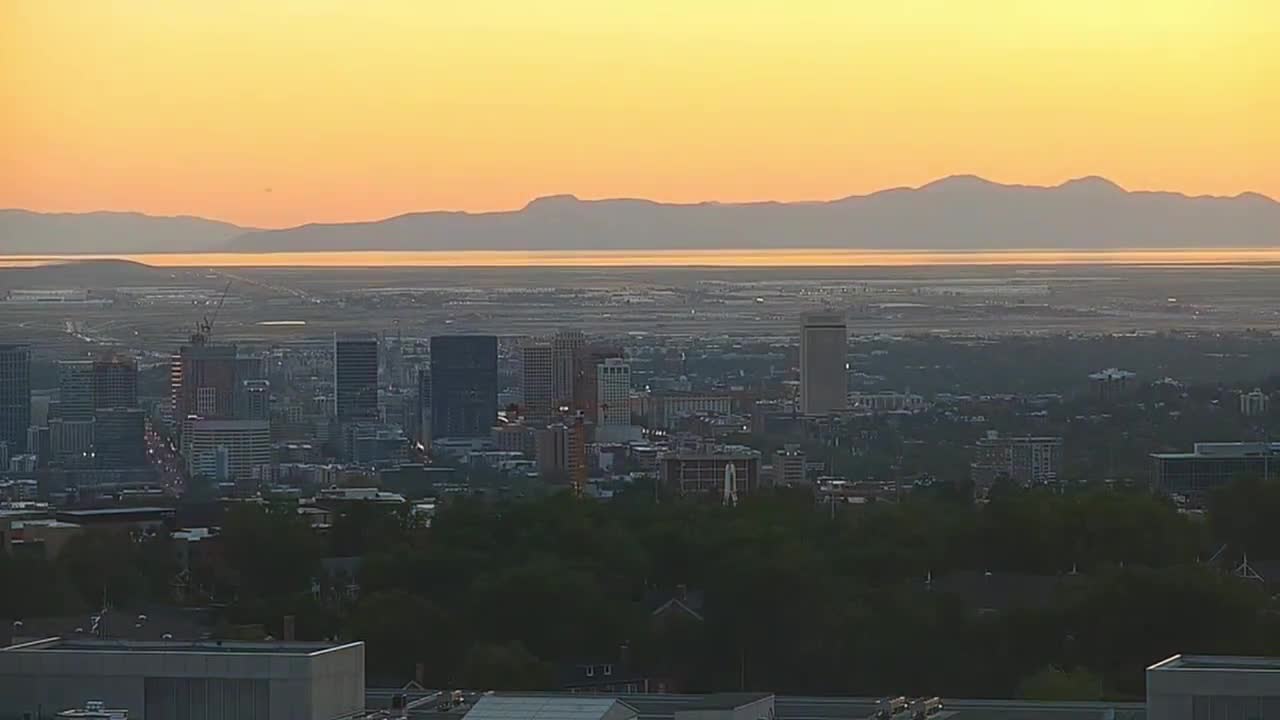SALT LAKE CITY — A new report prepared by Utah State University for the governor and members of the Utah State Legislature shows some successes and struggles when it comes to the state of our environment.
The document, which takes USU's many scientists and researchers' work and collapses it in an easy-to-read digest, was presented on Thursday to Lt. Governor Deidre Henderson. She praised its ability to help shape policy on Utah's Capitol Hill.
"What we’re hoping to do with this report is make it really easy to understand those top-level, actionable takeaways. So that policymakers can understand the science to make better decisions," Anna McEntire, the managing director of USU's Janet Quinney Lawson Institute for Land, Water & Air, told FOX 13 News.
This year's report showed many successes, but also found problems Utah is still facing when it comes to the environment. For example:
- Legislation to mitigate wildfire threats by identifying who lives in wildland urban interface areas was seen as helpful;
- Utah's aging dam infrastructure poses a growing safety risk for communities;
- Reducing carp from water bodies has helped ecosystems;
- Special wildlife crossings in Parleys Canyon has helped;
- Balancing critical mineral mining and nature in Utah needs to be a focus;
- Pollinator habitat programs to save bees are working;
- Housing, transportation and economic challenges face Utah's "gateway" communities outside popular recreation areas;
- Seismic codes underestimate the impacts of a magnitude 7.0 or greater earthquake along the Wasatch Front;
- "Cut flowers" are a surging new crop that is popular on social media and profitable for farmers.
There was some good news in the report when it came to Utah's air quality.
"Things are getting better," said Lindsie Smith, the executive director of the Utah Clean Air Partnership. "Over the past 15, 20 years our air quality has improved. That doesn’t mean the work is finished."
Cities could be pushed to enact tougher water conservation ordinances:
The USU report did note that while substantial progress has been made to reduce summertime ozone, it still remains an ongoing problem. Utah has made great progress in reducing wintertime PM2.5, but there needs to be better monitoring of PM10 and other pollutants. Wildfire smoke will also create health challenges for Utahns, the report said.
Smith said everyone has a part to play in reducing air pollution, noting half of emissions come from vehicles. She urged people to take transit and carpool.
"We as individuals do have the ability to make an impact," Smith said. "When we all swap out gas powered lawn equipment for electric equipment, or not idle, or use Tier 3 gasoline, we’re helping to reduce our individual emissions which collectively help our community be more healthy."
The Great Salt Lake remains an ongoing concern. The report did note that agriculture producers, the state's top water user, want to be involved in finding solutions.
"I definitely think that the balance comes from making sure all people who are involved in the usage of the water, that their voices are heard and their voices are at the table," Eric Marble with Chanshare Farms told FOX 13 News.
Utah now runs the world's largest remote-controlled cloud seeding program:
Lawmakers appear to be ready to address more water legislation. House Speaker Mike Schultz, R-Hooper, who attended Thursday's launch of the report, told FOX 13 News to expect some water infrastructure legislation. Great Salt Lake Commissioner Brian Steed, tasked by political leaders with coming up with a plan to save the lake, said he would like to see lawmakers make it easier for water rights holders to donate or lease water to the lake.
While still planning to pursue litigation over control of some federal lands in Utah, Speaker Schultz told FOX 13 News he is involved in discussions with the U.S. Forest Service about ways to manage those lands.
"In many cases, they’re just as frustrated as us because they’re not getting the support out of Washington, DC," he said. "So we’re working together collaboratively with the Forest Service to co-manage some of that land for the benefit of the citizens."
You can read the full report from USU's Lawson Institute for Land, Water & Air here.




